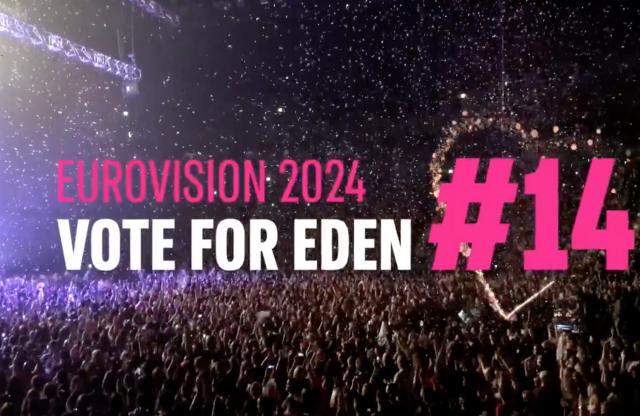In Malmö, Sweden, the city is bracing for a large demonstration as thousands are expected to protest Israel's involvement in the Eurovision Song Contest. This year's contest is marred by considerable political tension, making it one of the most controversial in its 68-year history, particularly due to calls from various groups and artists urging for Israel's exclusion over its military actions in Gaza.
The contest has taken on additional layers of complexity due to Sweden's recent NATO membership and recent incidents involving Quran burnings, leading to heightened security measures. Authorities, including spokesperson Jimmy Modin, have affirmed their preparedness for any scenario during the event.
Eden Golan, the Israeli representative at the Eurovision Song Contest, was booed by the crowd at y-day’s rehearsal in Malmö, Sweden
— Visegrád 24 (@visegrad24) May 9, 2024
Her song is about how to cope with friends dying on Oct. 7
25% of Malmö’s pop. on 350K consists of Muslim migrants
🇸🇪🇮🇱 pic.twitter.com/nu8IjjIdX5
Central to the controversy is the Israeli entry, "Hurricane" by Eden Golan, a 20-year-old performer. During a dress rehearsal, she faced significant backlash from the audience, including boos and calls for Palestinian liberation. This reaction underscores the broader, ongoing criticism directed at Golan, who is not only the face of Israel in this international forum but also a figure intertwined with two geopolitical conflicts. Golan, born in Kfar Saba, Israel, to Eastern European parents, had a significant portion of her early career in Russia, where she became a pop star before relocating back to Israel following the intensification of the Ukraine conflict.
Golan's participation in Eurovision follows her victory in Israel's "Rising Star" competition, where she dedicated a performance to the victims of Hamas' attacks on October 7. However, Eurovision organizers have required adjustments to her song "Hurricane," originally titled "October Rain," to align with rules prohibiting political content in lyrics.
The debate over Israel's participation has prompted a split among Eurovision artists, with some from Sweden, Finland, and Iceland advocating for a boycott, while others defend their involvement, stressing the apolitical nature of the event as emphasized by Eurovision Director General Noel Curran. Despite this stance, the European Broadcasting Union (EBU) has faced criticism over perceived inconsistencies, particularly in comparison to the exclusion of Russia following its 2022 invasion of Ukraine.
United for Eden 💙🇮🇱
— Israel ישראל (@Israel) May 9, 2024
Tonight Eden Golan will take the stage at the @Eurovision song contest and perform “Hurricane”.
Now’s our chance to show Eden just how much we love her.
Don’t forget to vote 1️⃣4️⃣! pic.twitter.com/BVrPvd2LWF
On the event’s perimeter, pro-Israeli groups plan to counter-protest by displaying Swedish and Israeli flags and playing past Israeli entries, celebrating both Golan’s performance and honoring the victims of the October 7 attacks. This highlights the intense and multifaceted socio-political backdrop against which this year's Eurovision Song Contest is set, reflecting broader regional and international tensions.


